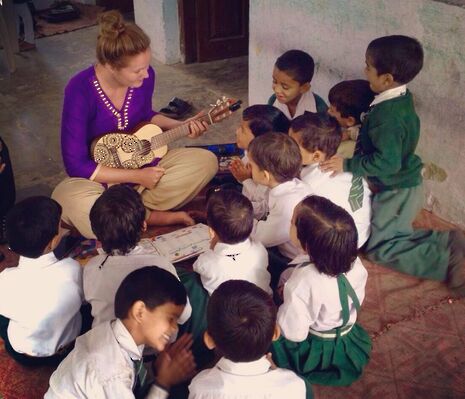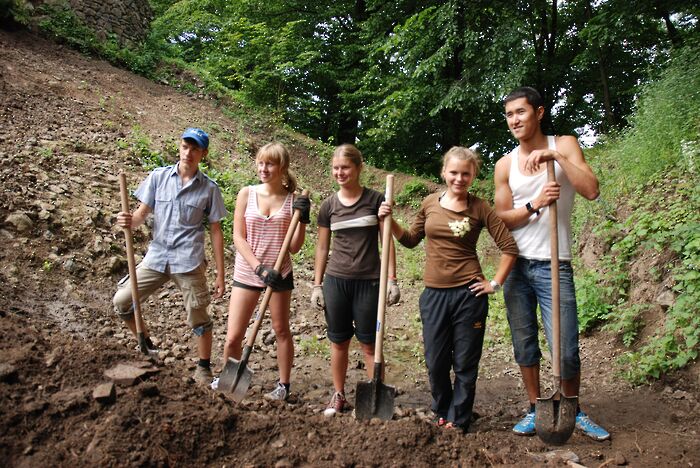From films to voluntourism, our colonial past still haunts us
The Western desire to ‘help’ other nations is imbued with prejudice and a dangerous notion of superiority, writes Anjali Vaz

While the darkest eras of colonialism have passed, its painful legacy remains embedded in the minds of many and its harmful effects are still very present in modern-day societies. A core part of this legacy is Westerners believing they were ‘civilising’ savage populations, and bringing what they considered to be superior culture and values to them. The white saviour complex centres on the idea of white people believing they can ‘save’ non-white people, regardless of their own socio-economic background. Cynthia Okorafor, a writer for Ventures, argues that a white saviour operates under the ‘colonialist and paternalistic mentality that Africa’s socio-economic problems can only be solved by ‘white interference’. The fact that the ideas of Western superiority and the white saviour complex are deemed acceptable is incredibly uncomfortable, and the issue needs to be understood and addressed.
"The narrative behind these films is inescapable, that the white person saves the day"
Staff of Oxfam operating in Haiti have recently been accused of sexually exploiting Haitian girls and women following the 2010 earthquake that devastated the country. These aid workers have horrifically exploited Haitian people at their most vulnerable, showing a dark side to international aid work and the power relationships that it fosters. This action was condoned by Mary Beard who recently tweeted about the difficulty for these workers in ‘sustaining ‘civilised values’ in a disaster zone.’ Beard uses language heavily connected to the colonial era to shame Haitians, treating them with a complete lack of understanding or respect. It is appalling that such an educated, well-renowned figure can so easily descend into a rhetoric of white superiority and demonise an entire population in fewer than 280 characters.
The white saviour complex is a narrative that forms important parts of mainstream film and media. In the recent film ‘Basmati Blues’ Brie Larson plays a scientist who ultimately saves India through introducing a new type of rice to India’s villages. The trailer alone portrays harmful stereotypes and the idea that Indian men and women need white people because they can’t develop their own agriculture effectively enough (incidentally, India has the second highest production of rice worldwide.) India is portrayed as an ‘exciting journey,’ a wonderland, playing on the idea of the exotic that was fetishised during the colonial period and the cultural appropriation that is considered acceptable even today. Other films such as the Great Wall and The Blind Side carry similar connotations; while seemingly heart-warming, the narrative behind these films is inescapable, that the white person saves the day.
"It is crucial to acknowledge the history behind the notion of Western superiority"
A number of students increasingly turn to volunteering in Africa during their holidays and gap years, in roles that vary from building schools to teaching English. What many do not consciously realise that, through this work, it is easy to slip into a rhetoric of Western superiority. Realistically, most students travel to Africa with little to no experience of the work they will undertake. They embark on they might consider to be a benevolent mission to save African people who are incapable of saving themselves. In the process, this mentality can infantilise the continent and belittle the capabilities of African citizens.
The money afforded for the students’ flights, food and accommodation would be better invested in engaging local staff who have experience of the work and the landscape and who need the opportunities which are taken by these students. A number of students also take photos with African people and put them on social media, using African people as objects to portray themselves as charitable and almost heroic on social media. I myself am guilty of engaging in this rhetoric, and it is easy to do so without even realising it. It is crucial to acknowledge the history behind the notion of Western superiority and understand how problematic it can be even in the most seemingly innocent, well-intentioned situations.
My family and I often travel to India. Every year, when walking to the beach, we see a man travelling up and down a steep hill to fill buckets of water to water his crops. This year, I spoke to my mum’s cousin about installing a water tap for him closer to his crops, I believed this would make a huge difference to his life. She reminded me that, while in itself this seems like a harmless gesture, it’s motivations are not. The suggestion had roots in the Western notion that our way of life is better, and that it is our responsibility to change and ‘save’ people from less developed countries. It promotes the idea that these people are weak, lack understanding and that Westerners should pity them. This man had probably been carrying out this work his entire life and didn’t need a 20-year-old to with no understanding to change his livelihood.
From films to voluntourism, the ideas of Western superiority and the white saviour complex are rife throughout our society. Through taking a step back, appreciating the colonial legacy that has been left, and fully understanding our own intentions these concepts will begin to fade. The incredible backlash to Mary Beard’s tweet shows that we are heading in the right direction, away from the intolerance she so clearly demonstrates and towards giving other countries, cultures, and religions the respect they deserve
 Comment / Why shouldn’t we share our libraries with A-level students?25 June 2025
Comment / Why shouldn’t we share our libraries with A-level students?25 June 2025 News / Lord Mandelson visits University30 June 2025
News / Lord Mandelson visits University30 June 2025 Features / 3am in Cambridge25 June 2025
Features / 3am in Cambridge25 June 2025 Theatre / Twelfth Night almost achieves greatness26 June 2025
Theatre / Twelfth Night almost achieves greatness26 June 2025 Features / What it’s like to be an underage student at Cambridge29 June 2025
Features / What it’s like to be an underage student at Cambridge29 June 2025





